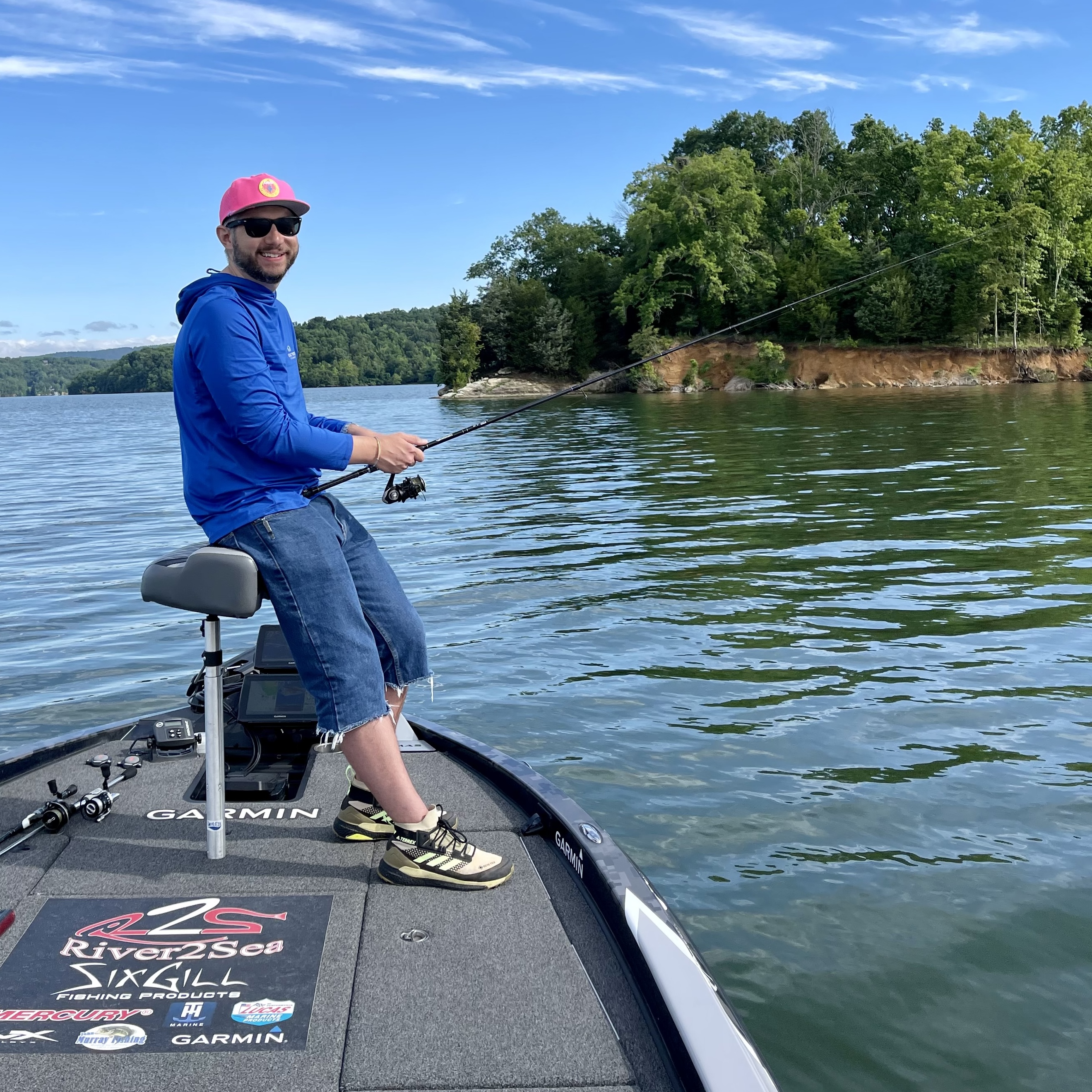I grew up in the suburbs of Chicago, but I’ve lived all over thanks to the flexibility of remote work — from the U.S. to Europe and back again. These days, I’m living on Watts Bar Lake in the Tennessee Valley, enjoying the kind of peaceful, scenic setting that pairs surprisingly well with running global mobile game initiatives.
I also play a central role in our brand partnerships and IP collaborations, including high-profile projects like the Bluey x Fruit Ninja crossover currently featured on Apple Arcade. That one involved tight coordination between Halfbrick, Apple, BBC, and Ludo Studio — the creators of Bluey — and stands as a great example of the kind of cross-company collaboration and trust we aim to build with everything we do.
On the platform side, I helped launch the paid tier of Halfbrick+ and expand the service with third-party games, leading everything from licensing and onboarding to SDK integration and developer support. I worked closely with developers and platform partners alike, while collaborating internally to ensure a polished, unified experience across the Halfbrick+ ecosystem — including the Hub app and SDK-powered features that tie everything together.
Before Halfbrick, I was Director of Mobile Publishing at GameMill Entertainment, where I was brought on to establish a dedicated mobile division and extend GameMill’s reach beyond console. I led the launch of the free-to-play mobile version of Nickelodeon Kart Racers, managed live ops for PGA Tour Golf Shootout, and originated the concept and early development of Rapala Fishing World Tour. I also supported the console side of the business, contributing to major titles like Nickelodeon All-Star Brawl, Nickelodeon All-Star Brawl 2, and Cobra Kai: The Karate Kid Saga Continues. It was a crash course in working with globally recognized IP, cross-platform development, and the complex logistics of retail and physical game distribution.
Rewind a bit, and I spent ten years as Editor-in-Chief at TouchArcade, where I covered iOS games from the very beginning — starting before the App Store even launched. I was there when $0.99 games dominated the charts, through the rise of free-to-play, and well before anyone took mobile game subscriptions seriously. That front-row seat eventually pulled me into helping build the future of mobile gaming.
At FunPlus, I helped incubate what became The Label — one of the first attempts at a curated, ad-free subscription service for premium mobile games. I led content sourcing and helped shape the brand’s identity, developer relationships, and internal tone. Many of the games I sourced went on to become Apple Arcade launch titles, and The Label was ultimately acquired by Team17 in a deal valued up to $40 million. (Also: I named it.)
From there, I joined GameClub as VP of Business Development. Our goal was to bring back the best premium mobile games from the App Store’s early years — the ones that disappeared due to OS updates and a shifting business model. GameClub became the first truly cross-platform mobile game subscription on both iOS and Google Play. I licensed and relaunched over 100 games, ran PR and marketing, managed developer relations, and helped position the service as a premium alternative to the ad-driven free-to-play ecosystem. I stayed on as General Manager following GameClub’s acquisition by Take-Two to oversee day-to-day operations as the platform continued to grow.
Throughout my career, I’ve also worked behind the scenes with major publishers on mobile strategy — including a consulting role with Activision during a pivotal moment in their mobile planning. That work contributed to the groundwork that eventually led to their $5.9 billion acquisition of King, one of the largest deals in gaming history. I also supported the rollout of Skylanders: Battlecast, a physical/digital hybrid game that brought collectible cards to life with augmented reality — helping bridge retail logistics and digital strategy in a particularly ambitious launch.
Earlier in my career, I was a web developer and server admin in the medical software space — building practice management systems, electronic claims processors, and HIPAA-compliant web apps before that was even a recognized category. It laid a strong technical foundation for everything that came after, even if these days I’m much more focused on creative, strategic, and player-facing work.
And long before any of that… I grew up on a goat farm.
